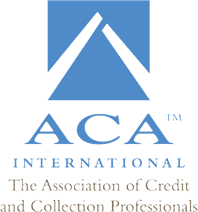The Fair and Accurate Credit Transaction Act, also known as FACTA, protects businesses and consumers from thieves that try to steal identity information. FACTA applies to all businesses that maintain, or in some way possess, consumer information for a business purpose. Failing to properly secure and maintain such consumer information can result in substantial fines and class-action litigation, with no statutory limitation, which can hold a company financially responsible for the actual losses to individuals involved , for more information regarding this act call Burt and Associates 877-740-7839
Tips for Preventing Identity Theft
Identity theft has reached epidemic numbers. According to Federal Trade Commission (FTC) statistics, in the U.S. alone there’s a new identity theft victim every four seconds. It may therefore be more a matter of when and not if it happens to someone.
Becoming a victim of identity theft or some other type of credit fraud can be an extremely stressful and costly experience if not handled swiftly and correctly. Although the victim may be protected financially, correcting the problem will still likely require a significant amount of time on their part.
It’s estimated that victims of identity theft must make a time investment of between 175 and 600 hours or more to recover their good names and clear the incident from their records.
So, how can someone determine if their identity has been stolen? There are a number of telltale warning signs that they should watch for, such as:
- Their credit reports list new credit cards issued in their name that they never applied for or received.
- Their credit reports list information about accounts that they didn’t open and know nothing about.
- They might notice charges on their monthly credit card- or bank statements that they didn’t authorize.
- They might stop receiving monthly credit card statements or important bills altogether.
- They might receive bills from companies with whom they’ve never done business.
- They might receive phone calls from creditors or collection agencies concerning accounts that they know nothing about.
It is important to take immediate action as soon as one becomes aware of identity theft or some other type of credit-related fraud. They should contact their creditors and bank immediately to inform them of their suspicions. If they’ve had a credit card lost or stolen (or they notice potentially fraudulent charges on their statement), they should report it immediately to the card issuer. Also, file a report with the local police department and obtain a copy of it. Collect and safeguard all documents, such as the credit reports, monthly statements, or other written information that relate to any suspicion. And if they believe someone is fraudulently using their Social Security number, notify the Social Security Administration.
Business identity fraud and Personal identity Fraud
The difference between Business Identity Theft and the personal, is just simply that the negative effect is on the corporate level rather in the personal level, this results can included; ruined business, fraudulent purchases, doing business made in your company’s name, damage credit ratings, obtaining fraudulent loans, and so on. This phenomenon that impacts all levels of business, specially small business where there is bigger damage, since most of the times lack of resources.
Fraud victims should change the passwords, PINs and account numbers of all the ATM/debit and credit cards and their bank accounts. Contact the Fraud Victim Assistance department at each of the major credit reporting agencies and request that a “Fraud Alert” be placed in their credit file. Once this is done, creditors will be instructed to take additional steps to verify the identity before granting them (or someone impersonating them) any more credit.
Regardless of the statistics, remain vigilant. One of the best ways to prevent identity theft is to subscribe to a credit monitoring service, as it notifies within twenty-four hours whenever any type of change is made to the credit report. Thus, if someone uses a person’s identity to apply for a credit card or any type of loan or credit account, the person will find out about it almost immediately and be able to take appropriate action before it’s too late.
For tips to protect your business and your identity, read our Commercial Collection Blog for more information.

